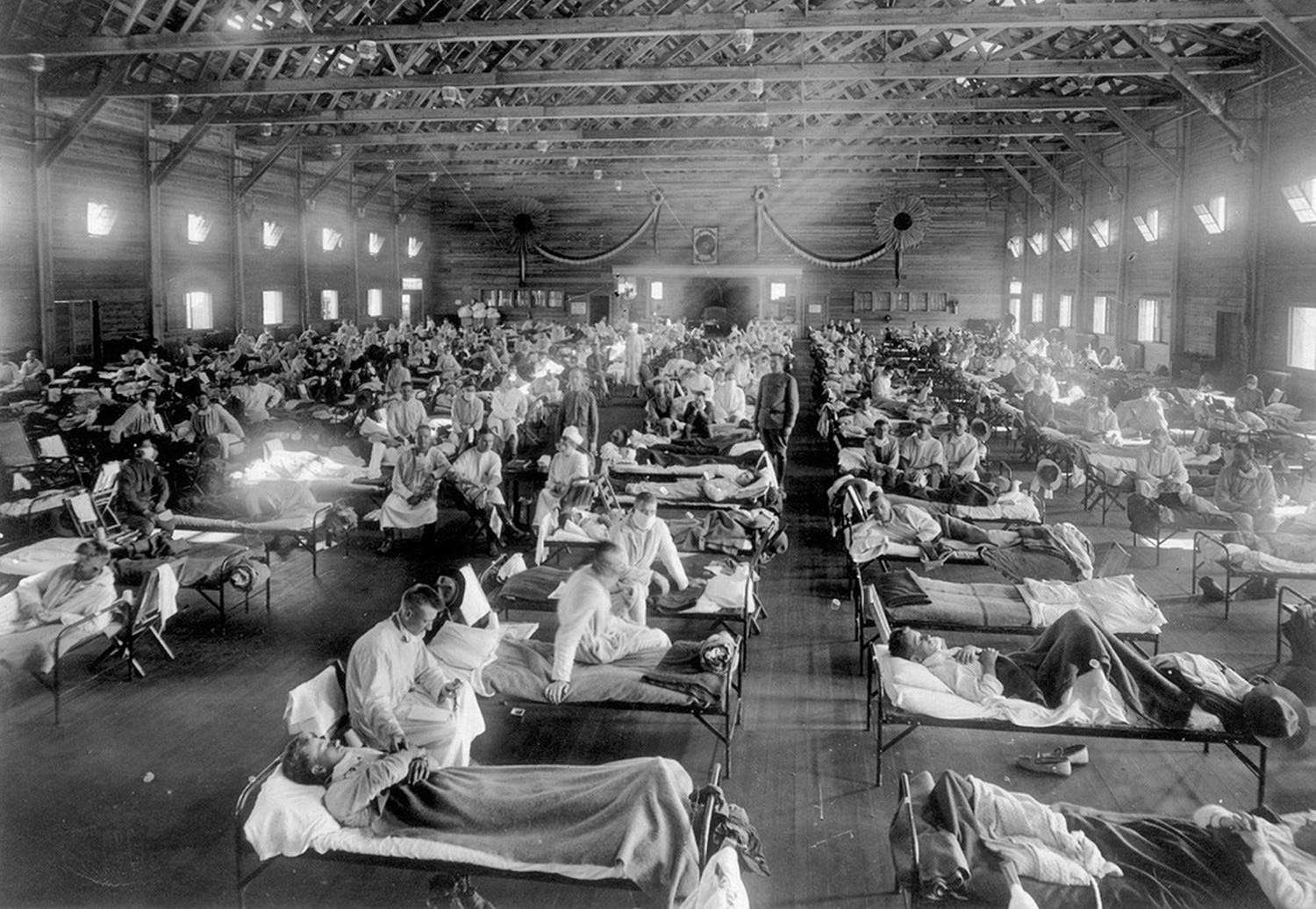Flu season returns to New Jersey after nearly disappearing during COVID - Asbury Park Press

The flu pandemic at the Jersey Shore
A look back at the influenza pandemic of 1918 to 1919 and how the Shore responded.
Ryan Ross and Erik Larsen, Asbury Park Press
Kevin Basca was sick for days with a cough, body aches, headache and fever, but it was not until he was struggling to breathe that he headed to the nearest emergency room.
"I couldn't catch my breath, and I felt like I was underwater," said the 40-year-old Pine Beach resident.
Basca said hospital staff diagnosed him with pneumonia after his weeklong illness and said he was negative for COVID-19.
He is one of the thousands of patients in New Jersey who have visited doctors offices, urgent care centers and hospitals in recent weeks for flu-like symptoms.
Across the state, doctors are reporting a later-than-usual flu season, one that is peaking in April instead of over the typical winter season.
"We've definitely seen an uptick in flu cases, specifically flu type A," said Dr. Mariam Ibrahim, who works at IMA Urgent Care in Shrewsbury.
In mid-April, flu cases appeared to peak across the state. More than 18,300 cases were diagnosed in New Jersey through PCR or rapid testing for the week ending April 23, up from 12,873 cases during the last week of March, according to state Department of Health surveillance reports.
After being nearly gone through 2021, flu is back, Ibrahim said.
"Now masks are off… there's a better chance of spreading all those (respiratory) illnesses," she said.
'It was us against the virus': What did hospital workers learn from two years of COVID?
Even though the flu season is occurring later in the year than usual, this flu outbreak is typical and mild, doctors said.
"We're not overwhelmed. It's nothing like flu seasons of previous years, pre-COVID," said Dr. Christopher Freer, senior vice president of emergency and hospitalist medicine for RWJBarnabas Health. The company's hospitals include Monmouth Medical Center in Long Branch, Community Medical Center in Toms River and the Monmouth Medical Center Southern Campus in Lakewood.
Flu's return after nearly disappearing last year looks like normalcy for many health care workers, Freer said.
"I can tell you why we didn't have it (flu) the year prior," he said, "because everyone wore their masks and was protecting themselves against anything airborne… I think that just squashed the flu season for 2021."
Flu symptoms
Like COVID-19, flu is also an airborne virus. The virus can spread up to 6 feet in air by someone coughing, sneezing or talking, according to the Centers for Disease Control. Healthy adults are typically infectious a day before symptoms appear and contagious up to seven days after the onset of symptoms, according to the CDC. Children and people with weakened immune systems may be contagious for longer periods, according to the agency.
At Bayshore Medical Center in Holmdel, the number of flu patients and the number of COVID-19 patients who are hospitalized are equal, said Dr. Daniel W. Varga, chief physician executive for Hackensack Meridian Health. He said both groups account for about 10 patients in total at the hospital, reflecting an improvement in COVID-19 conditions from earlier surges and a return of other, more familiar viruses, like flu.
"It's not a huge number (of hospitalized patients)," said Varga. "But yes, we are seeing a lot of flu right now. … It's a little unusual this late in the season, but not completely out of character."
Health news: New cancer treatments coming to Jersey Shore University Medical Center
While doctors say the flu season is on the milder side this year, the viral infection can be deadly or life-threatening in some cases. Typical flu symptoms include fevers, cough, sore throat, runny nose and body aches. More severe cases can lead to ear or sinus infections, pneumonia, and inflammation of the heart, brain or muscles, according to the CDC. In the most severe cases, flu can lead to organ failure and sepsis.
People with certain chronic medical conditions — such as diabetes, asthma and heart disease — as well as those 65 years old or older, pregnant women and children are at higher risk of serious flu complications, according to the CDC.
Every year about 3% to 11% of the United States' population becomes sick due to the flu, but only a small fraction of those infected require hospitalization, according to the CDC. Most recover in under two weeks.
"It's really important for folks not to get terribly alarmed," said Varga. "It's not unusual for us to see a late surge in flu."
Many of the techniques used to stop the spread of COVID-19 — such as mask wearing when social distancing is not possible, isolating when sick and diligent hand washing — are also good defenses from flu, doctors said. Flu vaccination can also help prevent severe complications from the virus, according to the CDC.
Varga encouraged anyone who is not feeling well and has flu-like or COVID-like symptoms to contact their doctor and get tested.
"There's treatments for both of these diseases (flu and COVID-19)," he said, adding that medications like Tamiflu for flu or Paxlovid for COVID-19 are available.
"If you're feeling bad, go get checked," Varga said.
Amanda Oglesby is an Ocean County native who covers Brick, Barnegat and Lacey townships as well as the environment. She has worked for the Press for more than a decade. Reach her at @OglesbyAPP, aoglesby@gannettnj.com or 732-557-5701.


Comments
Post a Comment